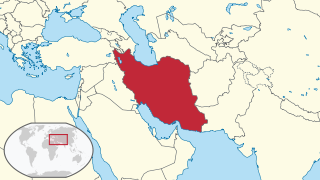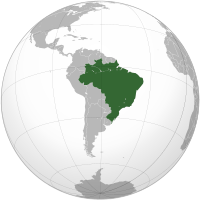The legal status of transgender people varies greatly around the world. Some countries have enacted laws protecting the rights of transgender individuals, but others have criminalized their gender identity or expression. In many cases, transgender individuals face discrimination in employment, housing, healthcare, and other areas of life.
Gender-affirming surgery is a surgical procedure, or series of procedures, that alters a person's physical appearance and sexual characteristics to resemble those associated with their identified gender. The phrase is most often associated with transgender health care and intersex medical interventions, although many such treatments are also pursued by cisgender and non-intersex individuals. It is also known as sex reassignment surgery, gender confirmation surgery, and several other names.
The following outline is provided as an overview of and topical guide to transgender topics.
The history and subculture surrounding transgender people in Singapore is substantial. As with LGBT rights in the country in general, transgender rights in Singapore have also evolved significantly over time, including various laws and public attitudes in regards to identity documents, as well as anti-discrimination measures used by or pertaining to transgender people, in the areas of employment, education, housing and social services, amongst others.
Corbett v Corbett (otherwise Ashley) is a 1970 family law divorce case heard between November and December 1969 by the High Court of England and Wales in which Arthur Corbett sought annulment of his marriage to April Ashley. Corbett (the husband) had known at the time of the wedding that Ashley (the wife) had been registered male at birth and had undertaken sex-reassignment surgery. However, after the relationship had broken down, Corbett sought to end the marriage, his legal ground for doing so being that the marriage had been invalid, as Ashley was of the male sex.

Transgender rights in Iran are limited, with a narrow degree of official recognition of transgender identities by the government, but with trans individuals facing very high levels of discrimination, from the law, the state, and from the wider society.

Lesbian, gay, bisexual, and transgender (LGBT) rights in Brazil rank among the highest in the world. Same-sex couples in Brazil have enjoyed the same rights guaranteed to heterosexual ones since 16 May 2013, including marriage and adoption. On June 13, 2019, the Brazilian Supreme Court ruled that discrimination on the basis of sexual orientation and gender identity is a crime akin to racism.
Mak Nyah, alternatively spelled maknyah, is a Malay vernacular term for trans women in Malaysia. It arose in the late 1980s in order to distinguish trans women from other minorities.

A transgender person is someone whose gender identity differs from that typically associated with the sex they were assigned at birth. Some transgender people who desire medical assistance to transition from one sex to another identify as transsexual. Transgender is also an umbrella term; in addition to including people whose gender identity is the opposite of their assigned sex, it may also include people who are non-binary or genderqueer. Other definitions of transgender also include people who belong to a third gender, or else conceptualize transgender people as a third gender. The term may also include cross-dressers or drag kings and drag queens in some contexts. The term transgender does not have a universally accepted definition, including among researchers.

Lesbian, gay, bisexual, transgender and queer (LGBTQ) people face difficulties in prison such as increased vulnerability to sexual assault, other kinds of violence, and trouble accessing necessary medical care. While much of the available data on LGBTQ inmates comes from the United States, Amnesty International maintains records of known incidents internationally in which LGBTQ prisoners and those perceived to be lesbian, gay, bisexual or transgender have suffered torture, ill-treatment and violence at the hands of fellow inmates as well as prison officials.

Transsexual people experience a gender identity that is inconsistent with their assigned sex, and desire to permanently transition to the sex or gender with which they identify, usually seeking medical assistance to help them align their body with their identified sex or gender.
Transgender disenfranchisement is the prevention by bureaucratic, institutional and social barriers, of transgender individuals from voting or participating in other aspects of civic life. Transgender people may be disenfranchised if the sex indicated on their identification documents does not match their gender presentation, and they may be unable to update necessary identity documents because some governments require individuals to undergo sex reassignment surgery first, which many cannot afford, are not medical candidates for, or do not want.

Lesbian, gay, bisexual, and transgender (LGBT) rights are liberal in Bahia. Homosexuality and same-sex marriage are legal in the state.

W v Registrar of Marriages [2013] HKCFA 39; FACV 4/2012 is a landmark court case for LGBT rights in Hong Kong. In a 4:1 decision, the Court of Final Appeal gave transgender people the right to marry as their affirmed gender rather than their assigned gender at birth.
Transgender rights in Australia have legal protection under federal and state/territory laws, but the requirements for gender recognition vary depending on the jurisdiction. For example, birth certificates, recognised details certificates, and driver licences are regulated by the states and territories, while Medicare and passports are matters for the Commonwealth.

Multiple countries legally recognize non-binary or third gender classifications. These classifications are typically based on a person's gender identity. In some countries, such classifications may only be available to intersex people, born with sex characteristics that "do not fit the typical definitions for male or female bodies."

Transgender rights in the Federal Republic of Germany are regulated by the Transsexuellengesetz since 1980, and indirectly affected by other laws like the Abstammungsrecht. The law initially required transgender people to undergo sex-reassignment surgery in order to have key identity documents changed. This has since been declared unconstitutional. The German government has pledged to replace the Transsexuellengesetz with the Selbstbestimmungsgesetz, which would remove the financial and bureaucratic hurdles necessary for legal gender and name changes. Discrimination protections on the basis of gender identity and sexual orientation vary across Germany, but discrimination in employment and the provision of goods and services is in principle banned countrywide.
This article addresses the legal and regulatory history of transgender and transsexual people in the United States including case law and governmental regulatory action affecting their legal status and privileges, at the federal, state, municipal, and local level, and including military justice as well.
The issue of transgender people and military service in South Korea is a complex topic, regarding gender identity and bodily autonomy. Currently, transgender women are excluded from the military of South Korea.
The legal status of gender-affirming surgery and gender-affirming hormone therapy varies by jurisdiction, often interacting with other facets of the legal status of transgender people. Key considerations include whether people are allowed to get such surgeries, at what ages they are allowed to if so, and whether surgeries are required in order for a gender transition to be legally recognized. As of 2007, the countries that perform the greatest number of gender-affirming surgeries are Thailand and Iran.












